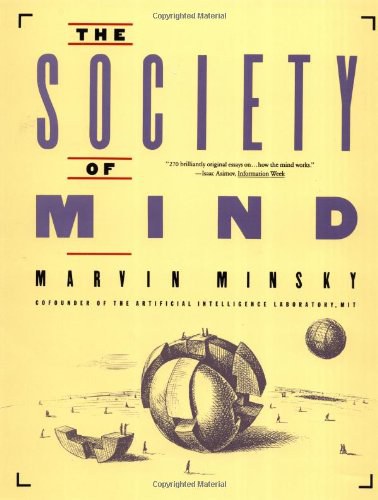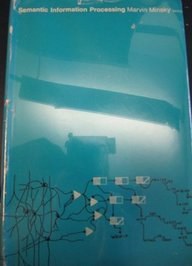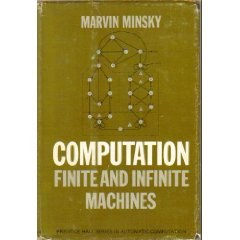The Society of Mind Goodreads 豆瓣
作者:
Marvin Minsky
Simon & Schuster
1988
- 3
转载自amazon.com:
Marvin Minsky -- one of the fathers of computer science and cofounder of the Artificial Intelligence Laboratory at MIT -- gives a revolutionary answer to the age-old question: _How does the mind work?_
(马文。明斯基————电脑科学的鼻祖,麻省理工学院的人工智能实验室的创始人之一————在本书里对相传以久的问题,“思维是怎么一回事儿?”,做出了革命性的回答。)
Minsky brilliantly portrays the mind as a _society_ of tiny components that are themselves mindless. Mirroring his theory, Minsky boldly casts The Society of Mind as an intellectual puzzle whose pieces are assembled along the way. Each chapter -- on a self-contained page -- corresponds to a piece in the puzzle. As the pages turn, a unified theory of the mind emerges, like a mosaic. Ingenious, amusing, and easy to read, The Society of Mind is an adventure in imagination.
(明斯基的精彩理论把思维描画成由本身不具备思维的微小部件组成的“社会”。本书章节段落之间结构跟他的理论相呼应,每一页纸独立成为一章,讨论整个问题里的单个环节。翻过这一篇篇书页,关于思维的统一理论渐渐成型,《意识社会》一书妙趣横生,是在想象空间里的一场历险。)
Marvin Minsky -- one of the fathers of computer science and cofounder of the Artificial Intelligence Laboratory at MIT -- gives a revolutionary answer to the age-old question: _How does the mind work?_
(马文。明斯基————电脑科学的鼻祖,麻省理工学院的人工智能实验室的创始人之一————在本书里对相传以久的问题,“思维是怎么一回事儿?”,做出了革命性的回答。)
Minsky brilliantly portrays the mind as a _society_ of tiny components that are themselves mindless. Mirroring his theory, Minsky boldly casts The Society of Mind as an intellectual puzzle whose pieces are assembled along the way. Each chapter -- on a self-contained page -- corresponds to a piece in the puzzle. As the pages turn, a unified theory of the mind emerges, like a mosaic. Ingenious, amusing, and easy to read, The Society of Mind is an adventure in imagination.
(明斯基的精彩理论把思维描画成由本身不具备思维的微小部件组成的“社会”。本书章节段落之间结构跟他的理论相呼应,每一页纸独立成为一章,讨论整个问题里的单个环节。翻过这一篇篇书页,关于思维的统一理论渐渐成型,《意识社会》一书妙趣横生,是在想象空间里的一场历险。)


